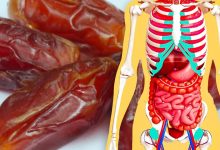
The scientists found the mysteries behind the strange and obscure things that our bodies do every day.
1. Your fingers wrinkle in the water

Blood vessel constriction is to blame for making your fingers and toes look like prunes after you step out of the shower. As the water starts to seep into your skin, the upper layers of the skin swell up. This water permeation causes the nerves in your skin to fire off electrical charges and chemicals, which make the blood vessels constrict. Negative pressure from your narrowed blood vessels pulls down the upper layers of your skin to create the wrinkles you see on your fingertips and toes. Evolutionary experts are finding evidence that it may have actually helped humans to grip objects better when in water.
2. Your body jerks right before you fall asleep

An estimated 70 percent of people experience hypnic jerks on a regular basis, that feeling you get when your body suddenly jerks right before you fall into a deep sleep. Research hasn’t been able to pinpoint the exact reason behind the strange phenomenon, but there are a few theories circulating. One of them is that your muscle tone starts to shift as your breathing and heart rate start to slow down along with a body temperature decline, which causes these twitches during the transition. It could also be that the brain sends a signal to your muscles to tense up because it misinterprets the relaxation of your muscles as a sign that you’re falling.
3. You hear the blood pumping in your ears

If you lie down or sit quietly, you may sometimes hear a pulse in one or both of your ears. This is a variation where the person feels and hears the pulse in their ears called pulsatile tinnitus. The sound is typically caused by a turbulent flow in the blood vessels in the neck and head. Pulsatile tinnitus is usually not a cause for concern unless it occurs frequently, which could be a sign of high blood pressure, a blockage in the ear canal, or artery problems near the ear.
4. Your eyelid randomly starts to twitch

A twitchy eyelid, known as blepharospasm, often happens randomly and can last anywhere from minutes to days. Most are usually harmless and don’t affect your vision. According to studies that fatigue, caffeine, and stress are common culprits. The experts recommend trying to stretch the muscle that is twitching. This condition will typically go away on its own but if it lasts for more than a couple of days, seek a physician immediately.
5. You taste metallic saliva right before you vomit

The copper-like taste you get right before you throw up is your body’s response to the stomach acids that are about to enter your mouth. Your body produces basic saliva to neutralize the acidity of the vomit. If this metallic saliva happens on a consistent basis, you could suffer from silent reflux, a condition where the stomach’s acidic contents come up into the esophagus.
6. Your nose burns when water goes up it

Cold freshwater is your nose’s worst enemy because the inside of your nose is a salty environment. “The cells in our body have a salinity content,” Stacey Gray, MD, director of the Sinus Center at Massachusetts Eye and Ear told Stat News. “Freshwater doesn’t have any salt in it so it’s very shocking to the inside of our nose when water goes inside.” The nerve endings that line the inside of your nose feel a burning sensation as the nose’s mucous rids itself of the freshwater invasion to restore its natural, salty environment.
7. Your nail falls off after a serious injury

If you stub your toe or jam your finger bad enough you could develop a subungual hematoma, which is when blood starts to collect under your injured nail to create a black or purple look underneath. If blood continues to build up under the nail, it may separate the nail from the nail bed and result in it falling off. A large accumulation of fungus or skin cells from the autoimmune condition psoriasis could also cause your nail to fall off.
8. Your knees crack after sitting for a long period of time

It’s normal to hear your joints crack and snap. In fact, the cracks you hear are nothing more than gas being released in between the spaces in your joints. The noises shouldn’t alarm you unless the cracking is accompanied by pain or swelling. Other things like muscles or tendons rubbing against your bone during a workout or cartilage wearing away from age may also make your joints creaky.
9. You hiccup after eating too quickly

Nothing is worse than getting a bad case of hiccups during a quiet meeting at work. Hiccups are typically short bursts of breathing that may occur when the diaphragm, a sheet of muscle above the stomach, is irritated. Your diaphragm contracts every time you breathe in. When you eat too fast, your stomach swells up and causes these diaphragm contractions. Thus, a serious case of hiccups ensues.
10. You get brain freeze from ice cream

No, your brain doesn’t actually freeze! When you consume ice cream too quickly, you’re rapidly changing your throat temperature from warm to cold. The throat is where the two arteries meet: the one that feeds blood to the brain and the one where your brain tissue starts. Once the cold hits those arteries, they dilate and contract rapidly, which causes the receptors in the brain’s outer membrane to feel a burning pain.
11. You get a “Charley horse”

A Charley horse is a fancy nickname for a painful muscle cramp, commonly in your calf. Research estimates that one in three people get these brief, uncontrollable muscle spasms in their legs. For non-disease-related muscle cramps, the exact reason is still unknown, but some experts think the muscles might be squeezing up because the nerves are firing off in the muscles. One study to support this theory found that the nerves inside the muscles fire off at high rates of up to 150 electrical charges per second, which forces the muscle to squeeze tightly and cramp up.
12. Your eyes tear up when you yawn

A film of lubricating tears coats your eyes, but whenever it builds up the tears can drain into the two tiny openings at the inner corners of your eyes. Yawning can actually block these openings because of the muscular tension that occurs when you close your eyes to yawn. A few tears may stream down your face because of this temporary blockage.
13. Your foot gets numb after sitting in the same position for a long time

The pins and needles you feel after getting up from sitting in a criss-cross position on the couch for too long are actually caused by pinching or pressure in the nerves that can hinder blood flow to that limb. And apparently, if you’re thinner you’re more likely to experience that tingling limb feeling because there’s not as much body fat to cushion the blood vessels in your limbs to prevent them from getting compressed when you sit.
14. You get a stitch in your side from running

Aside stitch is caused by irritation to the diaphragm, the muscle that separates the lung cavity from the abdominal cavity. Starting a new running routine can cause pressure to push up or down on the diaphragm from the abdomen or lungs, respectively. Any kind of pressure to the diaphragm can restrict blood flow and cause it to spasm. A greasy hamburger for a pre-run snack will fill up your stomach and pull down on the diaphragm causing it to spasm.
15. You get goosebumps when you’re scared

Humans inherited goosebumps from their animal ancestors. In terms of survival or longevity, goosebumps are futile. When you’re watching a scary movie or feel chilly, a surge of adrenaline, the stress hormone, is released into your body, which causes the teeny skin muscles at the base of each hair follicle to contract and make our body hair stand up. Even though this mechanism is useless for us, it comes in handy for animals because a raised fur coat helps insulate them from the cold or makes them look bigger to predators in times of distress.







